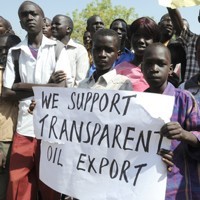Last week, the presidents of Sudan and South Sudan signed an economic and security deal in which they agreed to resume oil exports from the newly independent South and create a demilitarized zone along their still-disputed border.
Jon Temin, director of the Sudan and South Sudan Program at the United States Institute of Peace, told Trend Lines that in the weeks ahead he will be keeping an eye on the implementation of the agreements, which has been the downfall of so many deals between the two sides in the past.
“Are the various committees and other bodies called for in the agreements established on time? Are they funded by the two states? Are steps taken to restart oil production?” Temin asked. “In short, is the political will present on both sides to make these agreements succeed?”

